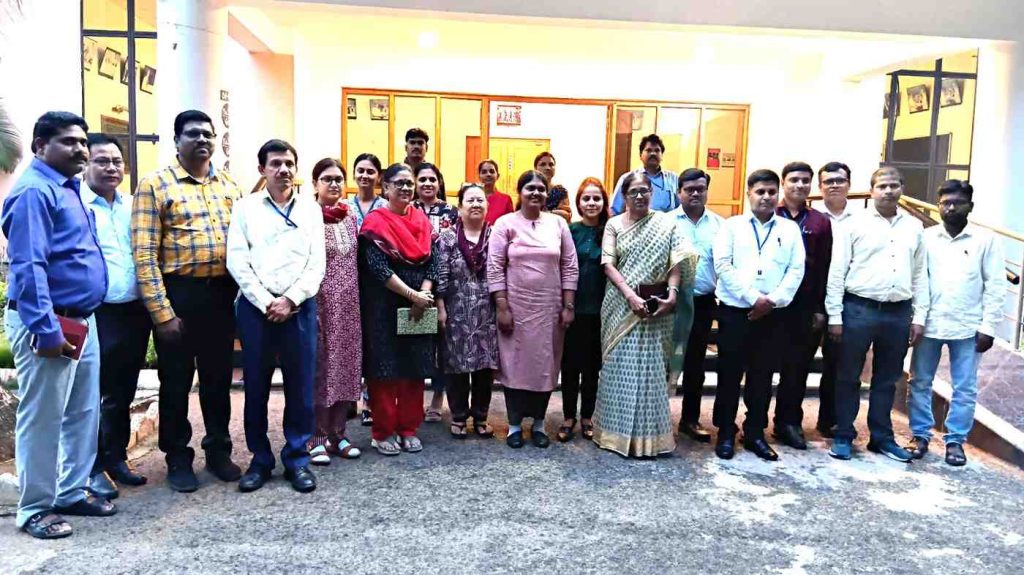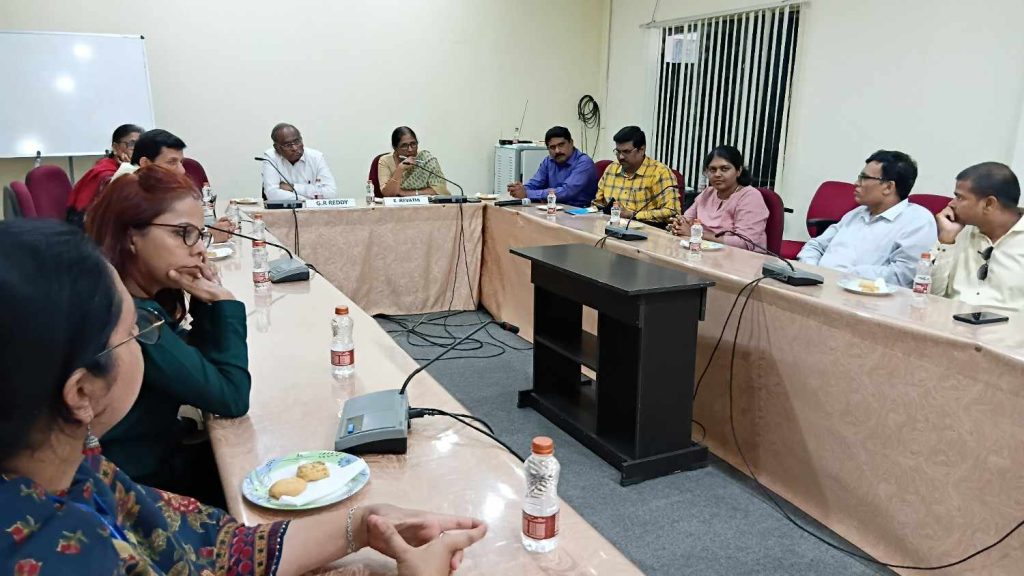Visit of Indian Economic Service (IES) Probationary Officers to CESS
Date: 25 June 2025
The Indian Economic Service (IES) Probationary Officers visited CESS on 25th June 2025. The officers are currently working across various ministries and departments at both the Central and State Government levels.
The delegation was warmly welcomed by Prof. E. Revathi, Director, CESS; Dr. G.R. Reddy, Founder Member of CESS and Former Advisor, Government of Telangana (Finance); and Dr. Alivelu Kasturi, Dean, Division for Graduate Studies, CESS.
The interactive session began with the IES officers introducing themselves and sharing details about their current postings, ministries, and departments. The officers represented a diverse range of sectors, including Roads, Tourism & Transport, MSME, NITI Aayog, and others.
The director briefed the officers about the research areas and research contributions of CESS. Further, she added that social science research plays a crucial role in shaping policies and ensuring that they reach and benefit the intended target groups. An important question was raised: “Are the policies really serving the people they are meant for?” She stated that this should be a continuous point of reflection for policymakers and administrators.
The challenges faced by researchers in accessing official data were also highlighted. The need for stronger linkages between research institutions and government ministries was pointed out, stressing that easy access to data is essential for meaningful policy research and evaluation.
Dr. G.R. Reddy, in his remarks, engaged the officers in a discussion about their roles and challenges in policy implementation. He asked the officers to share insights into how schemes are being implemented on the ground, how their effectiveness is monitored, and what hurdles exist in reaching the targeted beneficiaries.
Officers from the Roads and Transport sector discussed recent government initiatives aimed at road safety and accident victim support. They mentioned that ₹1.5 lakh is now being provided for the immediate treatment of accident victims. Additionally, the government has increased the financial reward for Good Samaritans—those who help accident victims reach hospitals—from ₹5,000 to ₹25,000, as per the revised guidelines.
Officers from the MSME Ministry highlighted the availability of enterprise-level data post-2020 under the Udyam Registration Portal. However, they acknowledged data gaps, especially regarding women entrepreneurs and sector-specific disaggregated data. Scholars pointed out the difficulty in accessing secondary data in the public domain, making research on MSMEs, especially women-led enterprises, challenging. Making more data available in the public domain would greatly help researchers, and the officers agreed to convey this feedback to the concerned authorities.
The officers also spoke candidly about the challenges they face in the field, such as inter-departmental coordination, ground-level monitoring of schemes, and ensuring timely service delivery to intended beneficiaries. They explained that balancing policy design with on-ground realities often presents unique administrative hurdles, including limited data flow between state and central departments and constraints in last-mile delivery mechanisms.
Many officers, reflecting on their own research experiences during their academic years, expressed empathy towards scholars facing data access issues today. They assured that they would convey these concerns to their respective ministries and explore ways to make more data available in the public domain, benefiting the larger research community.
The officers expressed appreciation for the insightful interaction at CESS and said that the visit was a valuable learning experience. They acknowledged the need for continuous improvement beyond their regular assignments, with a focus on ensuring that policies are effectively reaching and benefiting the people at the grassroots level.
The session also offered CESS scholars a platform to engage in meaningful discussions with the IES officers on research and policy matters


